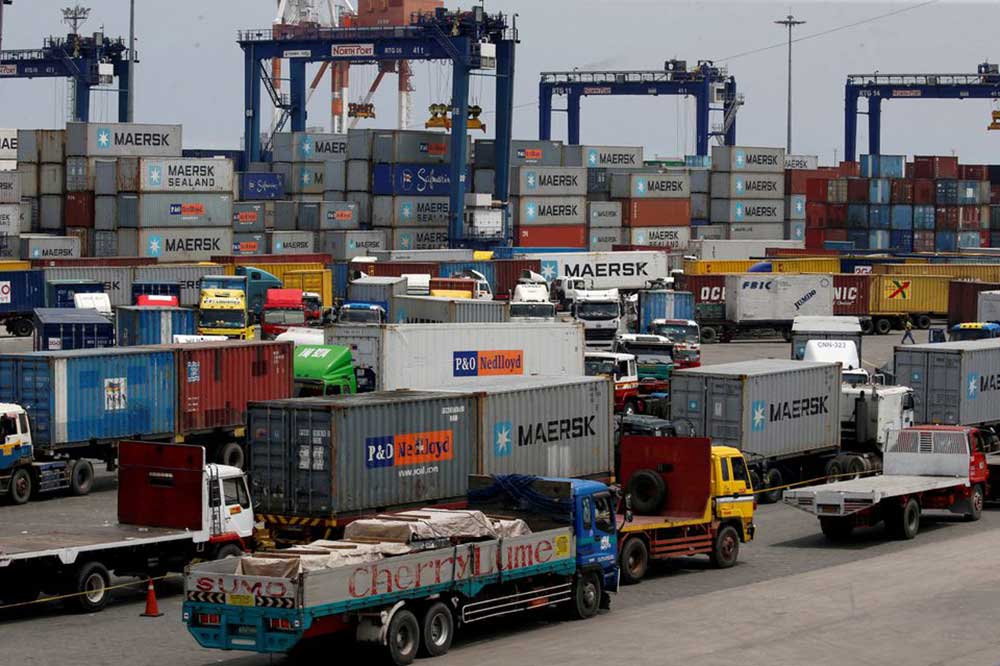The TradeNet’s full implementation under the Marcos administration is now underway as Department of Finance (DOF) Secretary Benjamin Diokno and Department of Information and Communications Technology (DICT) Secretary Ivan John Uy officially inked the long-awaited Memorandum of Agreement (MOA) last February 6, as a major step towards the full onboarding of all 73 government agencies regulating the import and export industry.
This is line with President Ferdinand Marcos, Jr.’s directive for all government agencies to interconnect, streamline, and digitalize their processes.
Witnessing the signing of the lead agencies were Anti-Red Tape Authority (ARTA) Secretary Ernesto V. Perez, Presidential Management Staff (PMS) Senior Undersecretary Elaine T. Masukat, BOC Commissioner Yogi Filemon Ruiz, DOF Officer-in-Charge Undersecretary Dakila Elteen M. Napao, and DICT Assistant Secretary Jeffrey Ian C. Dy.
The MOA has been pending for three years due to several revisions in the agreement.
However, in November 2022, the TradeNet’s implementation gained headway after ARTA convened the agencies and earned their commitment on the individual and joint responsibilities relevant to the platform.
The signed agreement ensures the development and sustainability of the TradeNet system as the Philippines’ National Single Window (NSW) platform that provides for the automated and integrated licensing, permitting, clearance and certification system of the Trade Regulatory Government Agencies (TRGAs) relevant in the import and export trade of regulated goods.
The platform will also continue to function as the official government portal for the electronic exchange of data on import and export that is connected to the Association of the Southeast Asian Nations (Asean) Single Window System, facilitating seamless trade with other countries in the region.
With this, the agreement specifically defines the DOF as responsible for the overall coordination, facilitation, and onboarding of the TRGAs to the TradeNet System.
ARTA, in accordance with its mandate under Republic Act 11032 or the Ease of Doing Business and Efficient Government Service Delivery Act of 2018, will assist in the onboarding of the TRGAs by helping streamline and re-engineer their processes.
Meanwhile, the DICT will operate, maintain, acquire, and modify the technological design and architecture of the TradeNet.
Perez underscored the collective efforts of the government to continuously improve the local import and export industry. He also noted the relevance of the TradeNet system to support Marcos’ push for the country’s post-COVID19 economic recovery.
“We know that in order for us to attract more investors or traders in the country, we need to address the high costs and long processing times of doing business in the Philippines.
We can look at TradeNet as another tool that can help us to curb over-regulation and high transaction costs with the government as it addresses the demand for efficiency by the public to transact with the government,” Perez said.
Diokno recognized the signing as an important milestone in the improvement of the trade facilitation in the country and committed to the platform’s full implementation.
“These efforts are anchored in the DOF’s obligation, under the Ease of Doing Business Act, to expedite the use of Information and Communication Technology (ICT) and adoption of digital technologies in enhancing the delivery of key public services. In this context, the DOF together with the DICT, BOC, and ARTA will continue to champion the government wide harmonization and automation of trade processes through the use of the TradeNet system,” Diokno stated.
Meanwhile, Uy acknowledged ARTA’s assistance to the lead agencies. “This MOA is the first step in addressing all these bureaucratic challenges that we have to streamline and as the President says, to produce an agile bureaucracy that will facilitate trade and make it easier for the transacting public to do business in the country,” the DICT chief also said.
Earlier this January, the Office of the President identified the TradeNet as one of the identified priority digitalization programs of the government for 2023.
As such, the MOA gives a greenlight to the DOF to continue this year on onboarding of the 18 identified priority TRGAs prior to their live operation to TradeNet.
These TRGAs are the Bureau of Plant Industry (BPI), Fertilizer and Pesticide Authority (FPA), Philippine Nuclear Research Institute (PNRI), Bureau of Agriculture and Fisheries Standards (BAFS), Bureau of Quarantine (BoQ), DTI – Export Marketing Bureau (EMB), National Meat Inspection Service (NMIS), Philippine Coconut Authority (PCA), Philippine National Police – Civil Security Group – Firearms and Explosive Office (PNP-FEO), Sugar Regulatory Administration (SRA), Philippine Fiber Industry Development Authority (PhilFIDA), Bureau of Internal Revenue (BIR), Bangko Sentral ng Pilipinas (BSP), National Commission for Culture and the Arts (NCCA), Philippine Gaming Corporation (PAGCOR), Forest Management Bureau (FMB), Office of the Protocol (OP), and Board of Investments (BOI).




